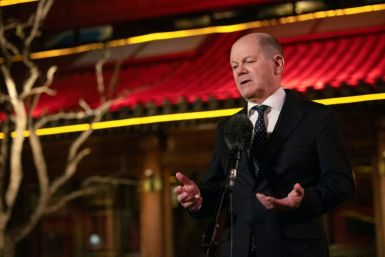IMF Review: Howard Administration was Most Wasteful Spender Among Australian Governments in Past 200 Years
While Oppositions in Australian politics often paint the current government as a bad one in a bid to wrest power, an International Monetary Fund (IMF) assessment said it is not the Whitlam, Rudd or Gillard Labor governments that there there was wasteful spending, but during the term of former Prime Minister John Howard.
The basis of the IMF in making that statement is an examination of 200 years of government financial records not only in Australia but across 55 leading economies.
The IMF pinpointed two periods of fiscal profligacy in Australia which were both during Mr Howard's term from 1996 to 2007. The first was in 2003 at the start of the mining boom and the second was during his last two years in office between 2005 and 2007.
The study pointed out that number of spending decisions beyond $1 billion went up from one in the first budget during the Howard administration to nine in the last year, while the proportion of savings measure went down from one-third of budget measures to 1.5 per cent at the end.
In 2007, the Howard government increased spending for the AusLink national roads programme by $2.3 billion and announced grants for water conservation and water buybacks worth $10 billion over the next decade.
Mr Howard, the second-longest serving Australian prime minister, belied the IMF charge and pointed out that the study failed to take into account fiscal stimulus during the Rudd and Whitlam governments. He insisted that Australia escaped from the 2008 global financial crisis because of the strong fiscal position of the government he left when he lost to Mr Rudd the previous year, not due to the government stimulus initiated by his successor.
Read also:
IMF Study Supports PM Gillard Statement that Howard Government Squandered Resources on Quick Fixes
Despite his emotional campaign material seen below, Mr Howard lost his parliamentary seat in 2007, the second Australian PM to do so since Stanley Bruce in 1929.
Shadow treasurer Joe Hockey, the minister for financial services during the Howard administration, also took exception to the IMF report. He insisted the Howard government left Labor a $20-billion budget surplus and no net debt.
"It was not John Howard and Peter Costello who wasted billions of taxpayer dollars on dangerous pink batts and overprices school halls, it was this Labor government," The Sydney Morning Herald quoted Mr Hockey.
Besides Mr Howard's term, the only period that IMF fiscal affairs economists found to be profligate was during the term of the longest-serving PM, Robert Menzies, in the early 1960s. But the IMF noted that during the 1950s, the Menzies government was prudent.
It is not only the IMF that found profligacy during the Howard government, but also Lindsay Tanner, former Minister for Finance and Deregulation in 2007, in this video.
Despite these two administrations, overall, Australian governments had been prudent in their spending with government debt reaching a peak of 98 per cent of gross domestic product, while in Canada it reached 143 per cent in 1946, in Japan 233 per cent in 2011 and 284 per cent in Israel in 1984.






